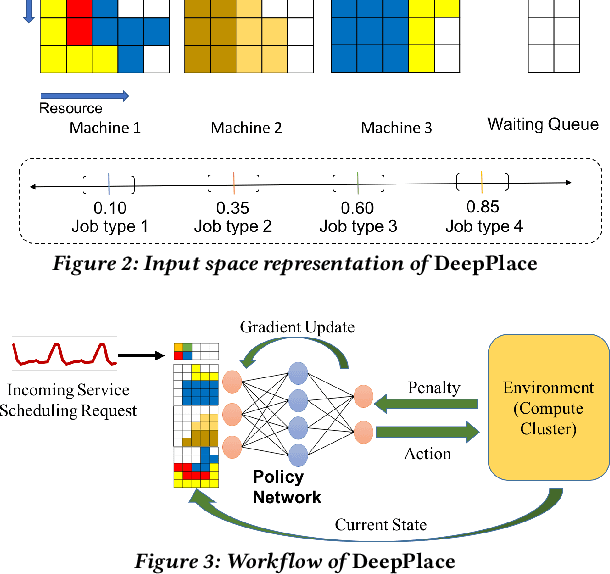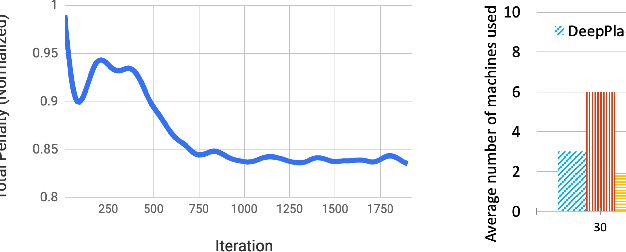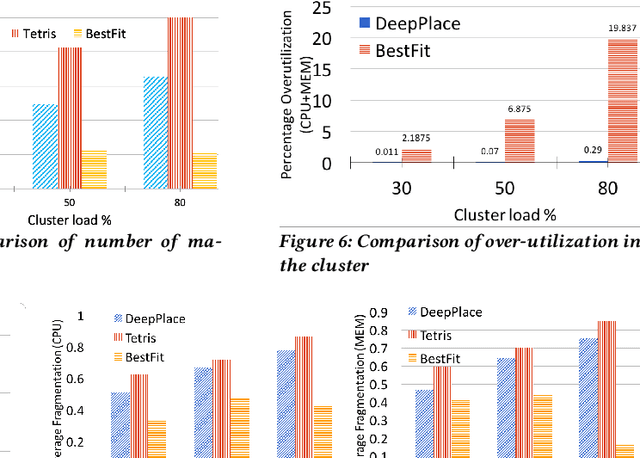Ramanuja Simha
DeepPlace: Learning to Place Applications in Multi-Tenant Clusters
Jul 30, 2019



Abstract:Large multi-tenant production clusters often have to handle a variety of jobs and applications with a variety of complex resource usage characteristics. It is non-trivial and non-optimal to manually create placement rules for scheduling that would decide which applications should co-locate. In this paper, we present DeepPlace, a scheduler that learns to exploits various temporal resource usage patterns of applications using Deep Reinforcement Learning (Deep RL) to reduce resource competition across jobs running in the same machine while at the same time optimizing for overall cluster utilization.
Protein (Multi-)Location Prediction: Using Location Inter-Dependencies in a Probabilistic Framework
Jul 30, 2013



Abstract:Knowing the location of a protein within the cell is important for understanding its function, role in biological processes, and potential use as a drug target. Much progress has been made in developing computational methods that predict single locations for proteins, assuming that proteins localize to a single location. However, it has been shown that proteins localize to multiple locations. While a few recent systems have attempted to predict multiple locations of proteins, they typically treat locations as independent or capture inter-dependencies by treating each locations-combination present in the training set as an individual location-class. We present a new method and a preliminary system we have developed that directly incorporates inter-dependencies among locations into the multiple-location-prediction process, using a collection of Bayesian network classifiers. We evaluate our system on a dataset of single- and multi-localized proteins. Our results, obtained by incorporating inter-dependencies are significantly higher than those obtained by classifiers that do not use inter-dependencies. The performance of our system on multi-localized proteins is comparable to a top performing system (YLoc+), without restricting predictions to be based only on location-combinations present in the training set.
 Add to Chrome
Add to Chrome Add to Firefox
Add to Firefox Add to Edge
Add to Edge